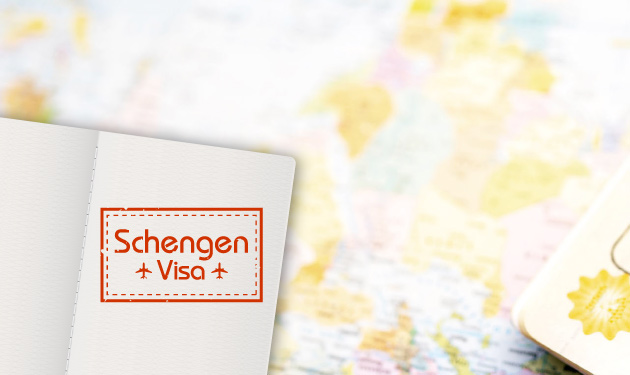In Schengen Countries Where to Apply for a Visa and the Rules, The Schengen Area, consisting of 26 European countries, allows for the free movement of people within its borders. However, for individuals from countries outside the Schengen Area, a Schengen visa is required to visit or travel within these countries. One common question that arises is: where can one apply for a Schengen visa? In this article, we will explore the rules and regulations regarding Schengen visa applications and the designated countries where individuals can apply.
1. General Rule: Applying at the Main Destination Country
The general rule for Schengen visa applications is to apply at the embassy or consulate of the main destination country. The main destination is defined as the Schengen country where the applicant intends to spend the longest duration of their trip or where the primary purpose of the visit lies. This rule applies regardless of the point of entry into the Schengen Area.
2. Exceptions: Applying at the Embassy/Consulate of the First Entry Country
There are exceptions to the general rule, where individuals may need to apply at the embassy or consulate of the first entry country instead of the main destination country. These exceptions are as follows:– If the traveler intends to visit multiple Schengen countries for an equal duration of stay, they should apply at the embassy or consulate of the country they will enter first.– If the traveler will visit multiple Schengen countries, but the main destination cannot be determined, they should apply at the embassy or consulate of the country they will enter first.– If the traveler will visit multiple Schengen countries, with different duration of stay in each, they should apply at the embassy or consulate of the country where they will spend the maximum duration.
3. Applying in a Country Where You Are Not a Resident
In general, individuals should apply for a Schengen visa at the embassy or consulate of the country where they are legally residing. However, there are cases where individuals can apply at a different embassy or consulate, even if they are not residents of that country. These cases include:– If the applicant can justify why it is more practical or reasonable to apply at a specific embassy or consulate (e.g., proximity to their location, language barriers, or specific circumstances).– If the applicant is a citizen of a country that has outsourced visa processing to another Schengen country, they can apply at the designated outsourcing center or the embassy/consulate of that country.
4. Additional Requirements and Documentation
Regardless of where the application is made, certain requirements and documentation are common for all Schengen visa applications. These typically include:– Completed visa application form.
– Valid passport with a minimum of two blank pages.
– Recent passport-sized photographs.
– Travel itinerary, including flight reservations and accommodation details.
– Proof of travel insurance with coverage for medical emergencies and repatriation.
– Proof of financial means to support the trip and stay.
– Purpose of visit documentation (e.g., invitation letters, conference registrations, or tour itineraries).
– Proof of ties to the home country, such as employment letters, property ownership, or family relationships.It’s important to note that specific requirements may vary depending on the embassy or consulate where the application is made. It is advisable to consult the official website or contact the embassy/consulate for accurate and up-to-date information.
Conclusion:
When applying for a Schengen visa, the general rule is to apply at the embassy or consulate of the main destination country. However, there are exceptions where the first entry country becomes the designated embassy/consulate for application. Additionally, there are cases where individuals can apply at an embassy/consulateof a country where they are not residents. It is crucial to adhere to the rules and regulations and ensure all required documentation is provided to increase the chances of a successful visa application. Consulting the official website or contacting the embassy/consulate directly will provide accurate and detailed information for each specific case.
FAQs:
In Schengen Countries Where to Apply for a Visa and the RulesQ1: Can I apply for a Schengen visa at any country’s embassy or consulate?
A1: No, you should generally apply at the embassy or consulate of the main destination country. However, there are exceptions where you may need to apply at the embassy or consulate of the first entry country or another designated country based on your specific circumstances.Q2: What if I am visiting multiple Schengen countries for an equal duration of stay? Where should I apply for a visa?
A2: If you are visiting multiple Schengen countries for an equal duration, you should apply at the embassy or consulate of the country where you will enter first.Q3: What if I am traveling to multiple Schengen countries, but I am unsure of my main destination?
A3: In cases where the main destination cannot be determined, you should apply at the embassy or consulate of the country where you will enter first.Q4: Can I apply for a Schengen visa at an embassy or consulate where I am not a resident?
A4: In general, you should apply at the embassy or consulate of the country where you are legally residing. However, there are exceptions where you may be able to apply at a different embassy or consulate based on practicality or specific circumstances.Q5: What if my country has outsourced visa processing to another Schengen country? Where should I apply?
A5: If your country has outsourced visa processing to another Schengen country, you can apply at the designated outsourcing center or the embassy/consulate of that country.Q6: Are there any additional requirements for Schengen visa applications?
A6: Yes, in addition to the general documentation, there may be specific requirements depending on the embassy or consulate. These can include proof of ties to the home country, the purpose of visit documentation, and financial means to support the trip and stay. It is important to check the official website or contact the embassy/consulate for accurate and up-to-date information. 


